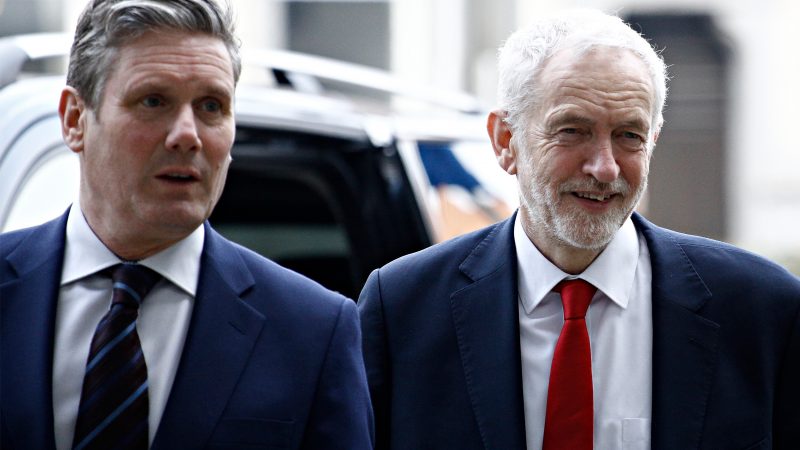
Forde’s findings brutally lay bare a deep-rooted factionalism that left our party dysfunctional. Tribalism entrenched all manner of shockingly bad behaviour – the same tribalism that risks entrenching poor behaviour under the new leadership, too.
Reflecting on this deep-rooted dysfunction is unflattering for all wings of the party. I have been harassed, defamed, threatened, bullied, deceived, followed, photographed without my knowledge, racially abused (I am Jewish), demeaned as a young woman and plagiarised. All in the name of political warfare.
We are all aware of the WhatsApp group language: fantasising about Diane Abbott crying in the toilets and being questioned by a journalist. Hoping a member of the party dies in a fire. In what warped world is such language so acceptable no one appears to have stepped in to stop it let alone report it? Where in our movement is this language learned? What political story arc brings good people to ‘break bad’?
If you’ve read the Forde report, or the Equalities and Human Rights Commission report, or simply been an active member of the Labour party, you’ll recognise some of the behaviours outlined by Forde. I am not naive about the ruthlessness of politics, but I hope that Labour at least aims for the moral high ground.
Moving forward, I don’t expect any of us to overlook wrongdoing or feign trust where there is none. I do expect people to be capable of speaking to each other respectfully, like normal human beings. We should be capable of debate that doesn’t descend into a verbal scrum.
The different aspirations of our broad church of members – and any disappointments – have to be managed, not crushed by immoral means. Whilst some might think that as chair of Open Labour I should revel in heated factional warfare between those to our left and those to our right, I have no intention of retreating under the comfort blanket of our party’s moral “smugness”, which Forde identifies so aptly in his report.
The party must break with this unsustainable culture because the following is how it plays out, regardless of which faction is temporarily in the driver’s seat. Internal debates on policy and political issues are viewed through a factional lens. Ideas – good or bad – are not considered on their merits, but on the basis of who suggested them, and what faction they are perceived to be aligned to and, for those who take the extreme view, whether that makes them an enemy who must be destroyed. Mutual respect is eroded. Informed decisions cannot be made because point-scoring is more important. Factional game-playing starts to destroy relationships.
Factionalism begins to supersede competence in hiring or selection decisions, sometimes with a dose of nepotism. A fast-track service operates for the under-qualified yet over confident sons and daughters of influential people, online activists who have demonstrated sufficient levels of factional loyalty and white middle-class Londoners called Hugo (sorry white middle-class Londoners called Hugo). Incompetence begins to reveal itself and affect the party’s efficiency and functionality.
Barriers remain firmly in place for those from backgrounds already under-represented in politics. Lack of diversity becomes ingrained and paves the way for ignorance, prejudice and discrimination. This begins to enter workplaces, local parties and wider debate. People begin to talk to about about each other in ways which are abusive and some start to think that racism, sexism and other forms of discrimination are fair game.
Apologies or atoning for wrongdoing are discouraged, for fear that an opposing faction might see it as a win. Allies go out on social media to defend the indefensible. Revelations of internal dysfunction that should be watershed moments are watered down into glib commitments of ‘reflection and accountability’ that fail – sometimes intentionally – to materialise into anything tangible.
Internal governance becomes infected with the personal and factional agendas of people who should be operating neutrally. ‘Yes men’ nod through bad choices and are rewarded for loyalty. The public sense that the party’s focus has shifted inwards.
Then, the party wakes up the day after a general election to find that voters delivered five more years of Tory rule and Britain is locked once more into a downward spiral of dwindling growth and living standards whilst the planet heads for irreparable climate catastrophe. I’ll stop there.
We cannot remain on a factional seesaw that sees power swing from one faction to another, whilst sectarianism remains rife and the root problems in our party culture fail to be properly tackled.
That is why Open Labour successfully campaigned for single-transferable vote in NEC elections, which not only means fairer votes for members but also breaks down slate culture and encourages less authoritarian ways of working. It’s why we put forward our own submission to the Forde inquiry and further ideas for party reform in our recent position paper. We’ll be issuing a fuller comment on Forde’s findings shortly.
On the issue of antisemitism, the EHRC has very comprehensively dealt with that and the party has made much progress so far. Antisemites who can’t recognise that Forde has further vindicated Jewish Labour members need to go to Specsavers.
The different Labour factions will not ride off into the sunset together. We should try to resist pointing fingers, and instead take this as an opportunity to learn, apologise and atone for any wrongdoing. And to mean it. To commit to better choices and to be part of the cultural growth of the party.
Moving forward means starting a dialogue. It means instigating efforts to at least look for common ground. It means finding shared priorities and ramping up efforts to make Labour a respected party of government. We need to all commit to the cultural growth needed to bring our movement together and sweep us to victory at the next election.




More from LabourList
Government abandons plans to delay 30 local elections in England
‘The cost of living crisis is still Britain’s defining political challenge’
‘Nurses are finally getting the recognition they deserve’